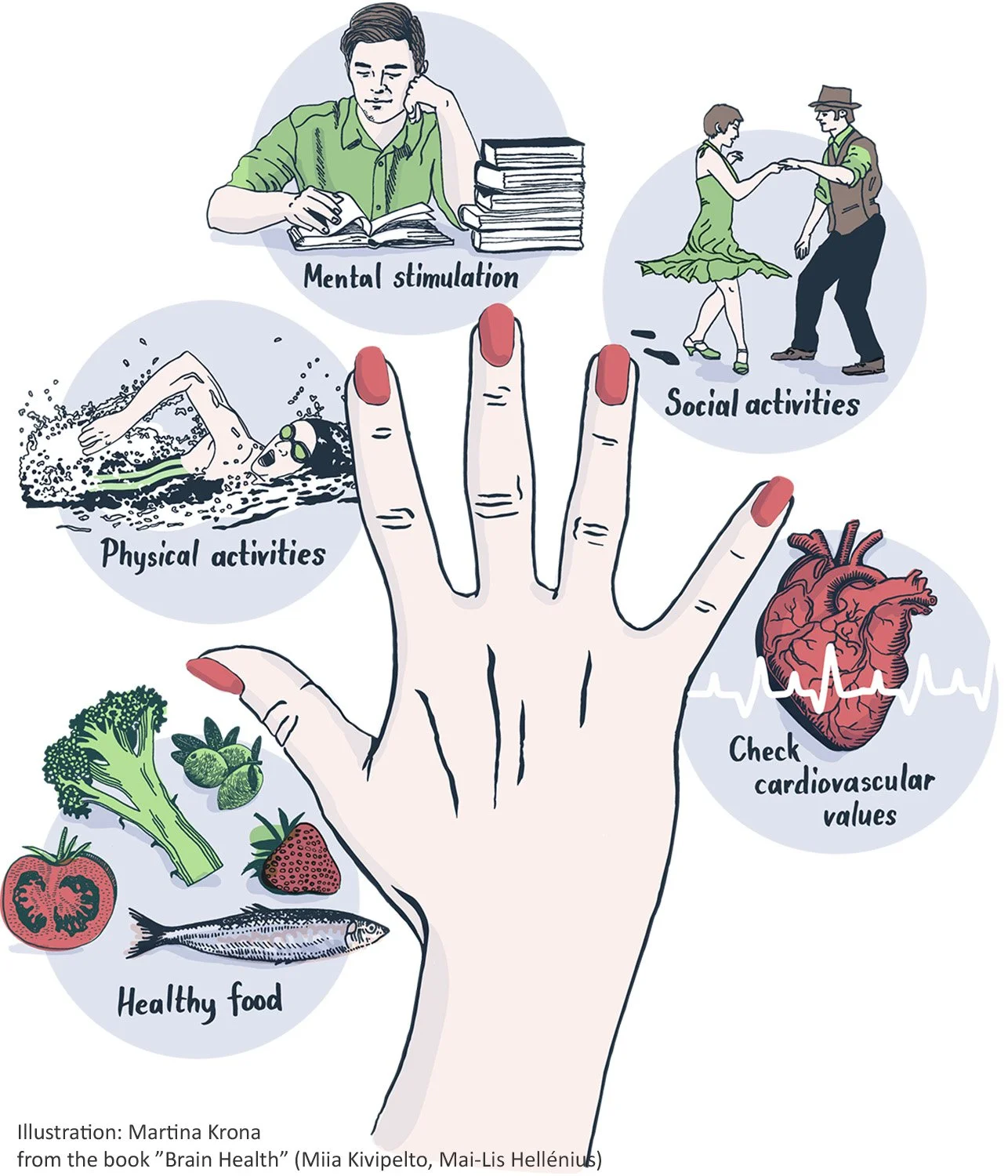In 2015, Finnish researchers proved that dementia isn't always inevitable.
The FINGER Trial changed everything.
The Finnish Geriatric Intervention Study to Prevent Cognitive Impairment and Disability (FINGER) was a groundbreaking randomized controlled trial that ran from 2009 to 2014. Published in The Lancet in March 2015, it was the first large-scale study to demonstrate that a comprehensive lifestyle intervention could significantly improve cognitive function in at-risk older adults.
Before FINGER, most dementia research focused on finding pharmaceutical treatments after symptoms appeared. FINGER asked a different question: what if we could prevent cognitive decline before it starts?
-
1,260 adults aged 60-77 years
Recruited from previous Finnish national health surveys
All at elevated risk for dementia based on the CAIDE Dementia Risk Score
Cognitive function at mean level or slightly lower than expected for age
-
Participants were randomly assigned to either an intensive lifestyle intervention or a control group receiving standard health advice. The intervention group received a comprehensive 2-year program addressing:
Nutritional guidance — Individual and group sessions with nutritionists following Finnish nutrition recommendations
Physical exercise — Progressive muscle strength training, aerobic exercise, and postural balance training
Cognitive training — Computer-based training and group sessions targeting memory, mental speed, and executive function
Vascular risk monitoring — Regular meetings with study nurses to monitor blood pressure, weight, BMI, and other cardiovascular markers
-
The intervention group showed significantly greater improvement in overall cognitive function compared to the control group.
Specific Improvements:
Executive function: 83% greater improvement vs. control
Processing speed: 150% greater improvement vs. control
Complex memory tasks: 40% greater improvement vs. control
-
The intervention group had a 30% lower risk of developing cognitive impairment after two years
Carriers of the APOE ε4 gene (associated with higher Alzheimer's risk) showed clear benefits from the intervention
Participants reported better health-related quality of life
Risk of multimorbidity was reduced by 60% in the intervention group
-
FINGER proved three crucial points:
Prevention is possible: For the first time, a rigorous clinical trial demonstrated that lifestyle changes could protect cognitive function in people at risk for dementia.
Multi-domain approaches work: Single interventions (just exercise, or just brain training) had shown modest results in previous studies. FINGER showed that addressing multiple factors together amplifies the benefits.
It's never too late: Even participants in their 70s with existing risk factors showed improvements. The brain's capacity for change persists throughout life.
Study Overview
Mindr brings the latest brain science into your daily life
Our program is built on the multi-domain approach proven in the FINGER trial and subsequent studies. We've translated the research into practical daily activities that fit your life.


